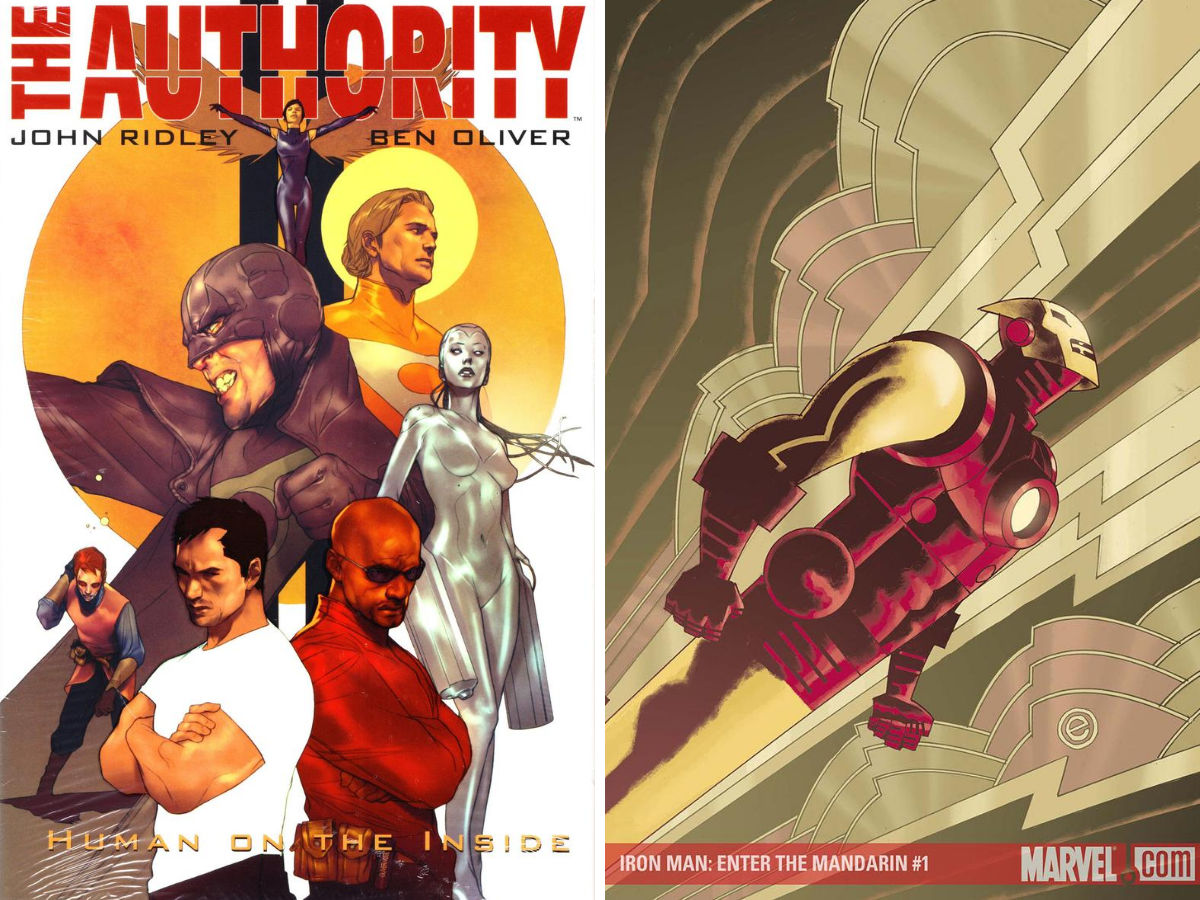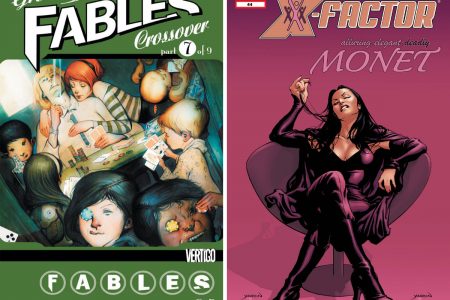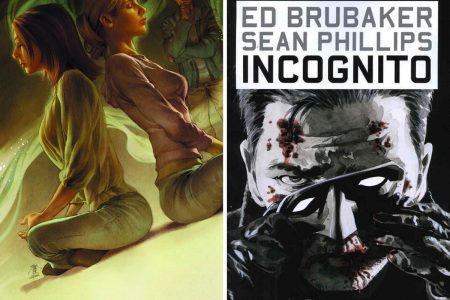I have been indulging in ‘reading too many comics’ syndrome – I’m glad that the library is there to help me with my problem, which saves me from buying them all the time – but, like last time, the books didn’t inspire much passion. I can’t stop myself writing about in some form, so you get a list of short notes on a variety of books.
Iron Man: Enter The Mandarin, by Joe Casey and Eric Canete, was a six-issue series that is ‘Based on Tales of Suspense #50–55 ‘ which looks visually interesting, based on the cover; however, the interior art isn’t as nice – it’s rather scratchy and sketchy by comparison and with a skewed sense of anatomy (looking like Mark Badger in places). It’s also very talky – Casey has the Mandarin going on and on and on – and doesn’t really add up to much. Disappointing.
JLA: Syndicate Rules is by Kurt Busiek and Ron Garney, collecting JLA #107–114 and JLA Secret Files 2004, and is something I never thought I would read – a dull and boring story from Busiek. How can this happen, when you have the DC Big Guns versus the Crime Syndicate of Amerika? It just doesn’t gel, and it doesn’t help that Garney’s art, so sharp and dynamic in his early work, lacks the pizzazz and special quality it once had. A very odd and dreary tale.
The Authority: Human On The Inside is a one-shot by John Ridley (writer of the film Three Kings) and Ben Oliver, in which someone tries to keep doing something with the Authority. Pity anyone who writes this team – a poisoned chalice since Ellis & Hitch left. Ridley does have a big idea for the book – about the loss of hope of humanity – but the story feels like it isn’t necessarily about the Authority. The team are beaten by the Greek goddesses of justice and Shen seems to be disintigrated, only for them to be saved by Danny Chan, who seems to be just a super martial artist (automatically making me suspicious of him). Chan then messes up the team from within while the overwhelming feeling of despair from the future robs the present of hope. However, the story logic evaporates in order for the climax of the tale to work, with a silly man from the future and Chan actually being a construct. Oliver’s art is nice but doesn’t seem to work for Authority – it’s too soft and charcoaly for the violence, brutality and reality of this book (not even showing Chen’s naked properly when she was taken prisoner – why?) – which diffuses the point of the story.
Bullseye: Greatest Hits is a five-issue collection from Daniel Way and Steve Dillon that I only read because of Dillon’s art (it’s so bizarre seeing him on Marvel mainstream superhero comic books – his facial expressions and storytelling seems at odds with their normal approach). The first issue is actually intriguing, with the interplay between government agents and the setting up of the story; however, with the remaining issues becoming readily apparent that everything is a lie, it becomes quite pointless, especially when you know that, like the Joker, they are not going to kill Bullseye. It is nice to see Dillon’s art, especially on the Punisher again, but it is only the details that make this readable – like having Bullseye in a high-tech prison on a liquid diet and laxatives because ‘they’re afraid that if I have a solid bowel movement, I might just kill somebody with it’. But trying to humanise Bullseye seems a waste of time, despite being well told.
I’ve enjoyed Mike Carey’s Felix Castor books so I thought I should try his Hellblazer work. Black Flowers (collecting #181–186) and Staring at the Wall (issues #187–193) are standard John Constantine stories, involving double dealing and Constantine being a bastard, although they are well researched and well constructed. I’ve never got the appeal of Constantine, but he’s very similar to Castor, so Carey can write this stuff with ease. The stories are atmospheric and the smaller stories build up to an over-arcing backstory, and it’s nice to see good artists doing good work (an early Jock tale, the moody and cartoony style of Marcelo Fruslin); however, I don’t feel connected to it or the character. Strangely, I would read more Carey-written Hellblazer.
And that’s the list, a little more than I anticipated, but it’s good to get the thoughts out there. Blame the library for having such a big selection of trade paperbacks …




